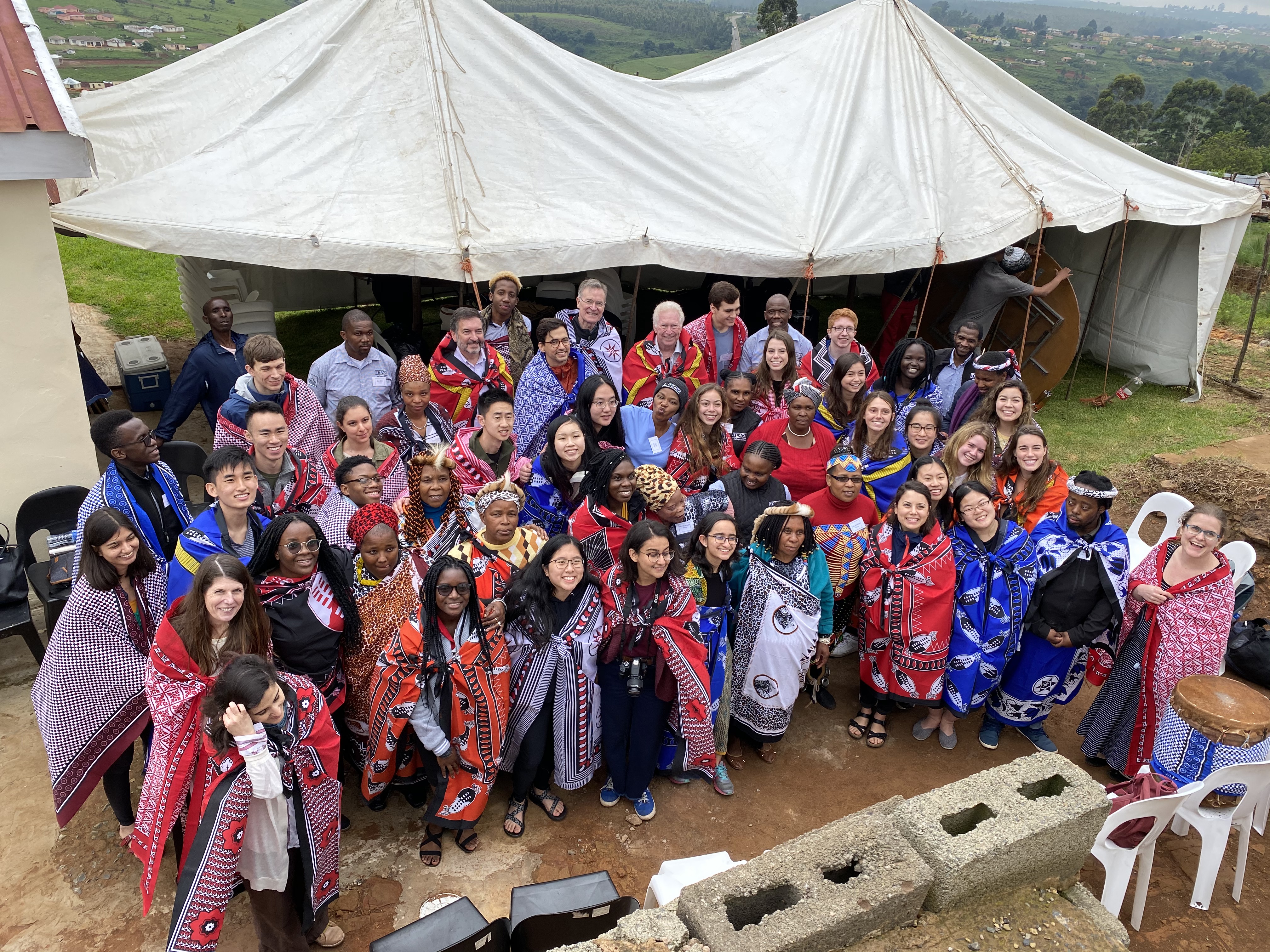
HST students traveled to South Africa for an IAP class that examined the medical, scientific, public health policy and advocacy responses to a new disease, by focusing on the evolution of the AIDS epidemic.
By Rachel Leeson and Megan Lewis
The Independent Activity Period (IAP) is a unique time at MIT, when students can explore special interests and research goals in innovative ways. A group of 20 HST students recently spent their IAP session doing hands-on learning in a class that fused biomedical learning with important field and clinical research.
The group traveled to South Africa as part of the IAP course, HST.434: Evolution of an Epidemic. The class, led by Bruce Walker, Director of the Ragon Institute, a professor of the practice at the MIT Institute for Medical Engineering and Science (IMES), Howard Heller, Assistant Professor, Medicine, Massachusetts General Hospital (MGH) and the Harvard Medical School (HMS), included HIV-focused biomedical and clinical research within South Africa and its most affected communities. The goal of the class was to examine the medical, scientific, public health policy, and advocacy responses to an epidemic, using HIV as a case study. It taught the “bench to bedside” research philosophy as a process defined by affected communities, researchers, and clinicians.
During the course, guest professors and industry leaders joined the students for various lengths of time, giving lectures but also engaging as they learned along with the students.
“Providing benefit to patients is more than just making a device or developing a drug,” Walker said “The effort is all for naught if patients don’t use it, and that is what this course is about—not just the biology of HIV and the path to treatment and vaccines for this epidemic, but the societal, economic, behavioral, policy and advocacy issues that continue to influence the course of the epidemic.” This is not something that can be taught in the classroom, and we are so fortunate to have the support of IMES in making this experience possible for the students.”
The class traveled to Durban, KwaZulu-Natal, South Africa, where 50% of young women acquire HIV by age 25. There, they learned from, and interacted with, researchers, clinicians and participants in HIV research located in the heart of the epidemic. They met with traditional Zulu healers who administer HIV tests and screen for tuberculosis, through a program called iTeach. Additionally, they discussed dating norms with participants in the Females Rising through Empowerment, Support, and Health (FRESH) study; attended a panel discussion with the directors of the Centre for the AIDS Programme of Research in South Africa; and learned about longitudinal epidemiological data at the African Health Research Institute. The trip wasn’t all work — they also took some time to enjoy the beautiful scenery and animals in the Hluhluwe Game Reserve. All of these experiences helped emphasize that the challenges in an epidemic are not merely biological; positive impact can only happen when the community’s needs, wants, and circumstances are taken into consideration, along with the science.
This experience allowed the students, future researchers, leaders, healthcare providers, and policymakers, to understand an epidemic through immersion into its very heart. “This is not something that can be taught in the classroom, and we are so fortunate to have the support of IMES in making this experience possible for the students,” Walker said.